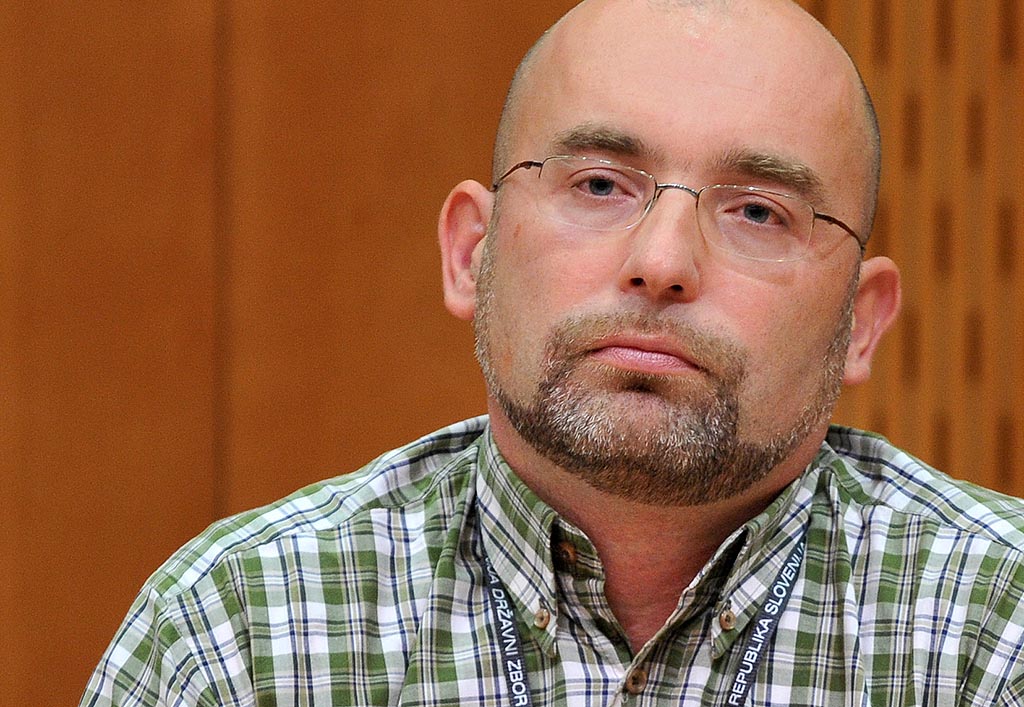By: Domen Mezeg
“Bestseller texts, lucid analyses, literary highlights. The DW prize winner is now going for the Pulitzer”, Bojan Požar, an investigative journalist, has recently commented on the “impartial” recordings of journalist Blaž Zgaga, who became famous in the last year for receiving the Deutsche Welle Award for his ideologically profiled journalistic activism against the government of Janez Janša, while he tried to present himself to the public as a victim of the government and the Prime Minister. Other recipients of the award are also said to be oppressed journalists from countries such as Venezuela, Zimbabwe, and Cambodia, etc.
It may be time for journalist Blaž Zgaga to receive the Pulitzer Prize, which would not be surprising, given the strong network of Slovenian “impartial” journalists and their transitional colleagues from left wing political circles. By the way, the Pulitzer Prize is considered the highest state recognition in the United States for the journalistic press. Connoisseurs of the Slovenian media space could only be surprised on May 3rd when we read on STA that “Slovenian journalist Blaž Zgaga is among the 17 winners of the German media Deutsche Welle awards for freedom of speech”. Deutsche Welle presented the award to “all brave journalists in the world who are oppressed by reporting on the pandemic,” their CEO Peter Limbourg said. “Recipients come from 14 countries. Only Slovenia is a member of the European Union.”
Some time ago, journalist Bojan Požar told some interesting personal experiences with Zgaga for the show Faktor on TV3: “I collaborated with him a bit. He also made certain articles for me, dealt with certain topics, wherein it was interesting that he never wanted to be exposed in public. He prepared two or three articles for me, but because some well-known names from the transitional left were involved, whom he otherwise correctly investigated, found documentation, and discovered certain indecencies. But then he offered it to me for publication under my name, because he did not want to expose himself, which says something about him.” As Požar also stated, he and Zgaga have a certain common history and he knows his range. At the same time, he expressed surprise at his activation abroad, which borders on pure pathology. “Something probably happened to him at that time, because he is basically living the life of Janez Janša now.”
“He tweets about 20, 30, 40, 50 tweets a day just about Janša. You wake up and start living Janez Janša and with that you go to sleep.” What is most absurd, however, is that someone who does not write any article, perhaps one, in one year, receives the Journalist Award of the Year by Deutsche Welle and, on top of that, another 50,000 euros. According to Požar, such stories are not completely innocent and are connected with the intelligence services and secret operations. Even if we look at some of Zgaga’s articles from the past, it can be argued that it was impossible to compile them without the help of some foreign powerful intelligence service. “I do not think you can tackle a strong Montenegrin underground today after a certain editor of Nacional in Zagreb is blown up by a bomb, and you, like a Blaž Zgaga, survive and continue to have a good time in Ljubljana. This is in fact not possible without some intelligence services.” According to him, Zgaga is not a prototype of a Slovenian journalist, he is a screw in a war against Janša, and maybe even in a major strategic war that is taking place in Europe or in the World.
“In my opinion, awarding Blaž Zgaga with the Freedom of Speech Award is something like awarding Metod Trobec with the Women’s Rights Award…!”
Upon Zgaga receiving the award from DW, the editorial board of the newspaper received questions from concerned members of the Slovenian public. Among other things, the reasons for their decision were of interest to Romana Tomc, a Member of the European Parliament, who explained her experience with DW as follows: “I got the feeling that they are not allowed to be asked anything. They clearly understand every issue as an interference with media freedom. I can conclude that their procedures are very non-transparent, otherwise they would not have any problems with the answers.” Branko Grims, a member of the Slovene parliament, also commented on the matter: “The fact that Blaž Zgaga received the Deutsche Welle award for freedom of speech proves at most that those at Deutsche Welle do not understand Slovene… In my opinion, awarding Blaž Zgaga with the Freedom of Speech Award is something like awarding Metod Trobec with the Women’s Rights Award!” Recall: Metod Trobec was a mass murderer who burned five women in a brick oven.

